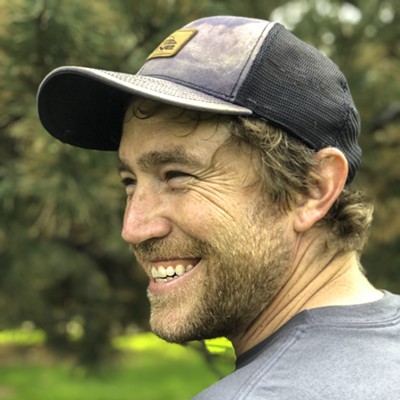Westword: You've been with Pretty Lights for a while,;when did all of that get started for you?
Michal Menert:Let's start it off with history: Derek [Vincent Smith] and I have been making music for a long time. We made the first Pretty Lights album together, and that was when Pretty Lights was just a side project. It kind of took off, and for some personal reasons at the time, I couldn't tour or really focus at that time. Then Derek kind of started doing his own thing, so when it came time for me to get back on it, it didn't make sense to jump back into what was now his solo adventure.
What do you think contributes to Pretty Lights Music success in the last year?
From the beginning, Pretty Lights was more of a crew to us, like just our group of friends. We had the website and were letting people download Derek's album, then we released my album, and that was kind of the test of what we were able to produce as a label. We wanted to pump more than just Derek's music, but for some reason, having only one other artist on there wasn't enough. When Break Science and Paper Diamond starting putting out their records, it kind of solidified it that we were a label. Having just one artist doesn't make you a label, so we built it up.
What was it like in the beginning, for you, building momentum off your album and really striving to push your music?It's crazy to see how much it's changed! The concerts and all that came later down the line, with all the lights and the whole show. To start, just putting my album on the website was a big step, and whereas lot of the independent record labels didn't really start like us, we were able to try other things. Since we didn't have the same overhead costs, it just made sense to try it our way. And it worked.
And your way is giving music away through the website.
This is how I wanted my music to be distributed, and my number of downloads doubled when we added more artists on the site. More artists means we up the traffic, and more people are exposed to more music. Think about how many times you went to buy an album and didn't have any money. Now you can have it for free, and you can trade it to friends, and if they don't like it, they can delete it. Personally, I like supporting music in any way I can whether that's downloading the album then buying it on vinyl, or grabbing a T-shirt at a show, or just going to the show. It all eventually goes back to the independent artists, and it proves that the classic model of a label is not the best way to distribute music. You don't need to shell out cash, because now the artists can earn from their own grassroots work.
Now, after years of touring, what do you think when you look back at all the work you've put into this?
The whole journey is the destination to me, and starting out on the road has allowed me to appreciate this work a whole lot more. There is a huge group of people that share a like-minded view on life. So like, I grew up skateboarding and snowboarding, and the board culture embodies a lot of what I apply to my music: Doing it because you love it, not because there is money. There is a sacrifice, but this is a way to refresh yourself.
Speaking of the board culture, you're signed on to play with RJD2 and Doomtree at Snowboard on the Rocks. What does it mean to be able to merge the two major influences at one event?
I am blessed to be in this position. I've always looked up to artists like RJD2 and DJ Shadow . Honestly, I jumped at the opportunity for SotR because I snowboard, and it's the premiere of TB20. I've been watching these guys since I was a kid, and now I can shake hands with people I grew up idolizing.
Looking back, what sticks out from all your experience with touring, producing -- and essentially redesigning how music is distributed?
I grew up idolizing deejays, emcees, and when I met them, they gave me hope to do what I want. I've been touring for fifteen years, so when I meet people that are younger than me, who are in the culture and in the scene, I see that lot of them can't handle the tough times when it gets hard on the road. With how quickly people rise to fame now, you realize what integrity is in this scene. Now people like my music more because they are familiar with it because it has been around.
Westword: Do you think it's because they are familiar with it, or because it's good music?
I don't care if I go on at 7 o'clock and there is only fifteen people there, I am going to show them the best time I can. The best example I can think of is "Finally Moving," off the first PL album. It was played at coffee shops in Fort Collins to people who had no idea what it would turn into. Now, you go to Red Rocks, and every single person sings along to it. When you put your heart into something, it really pays off. You know, people believed in me, and as much as it felt hopeless at times, I can really appreciate it now that I'm able. When the little things don't work out, they didn't matter. It's like part of being in this industry is being able to survive. I was making next-to-nothing opening up for different groups, but I kept smiling and meeting fans, and now I'm about to release my next album.











